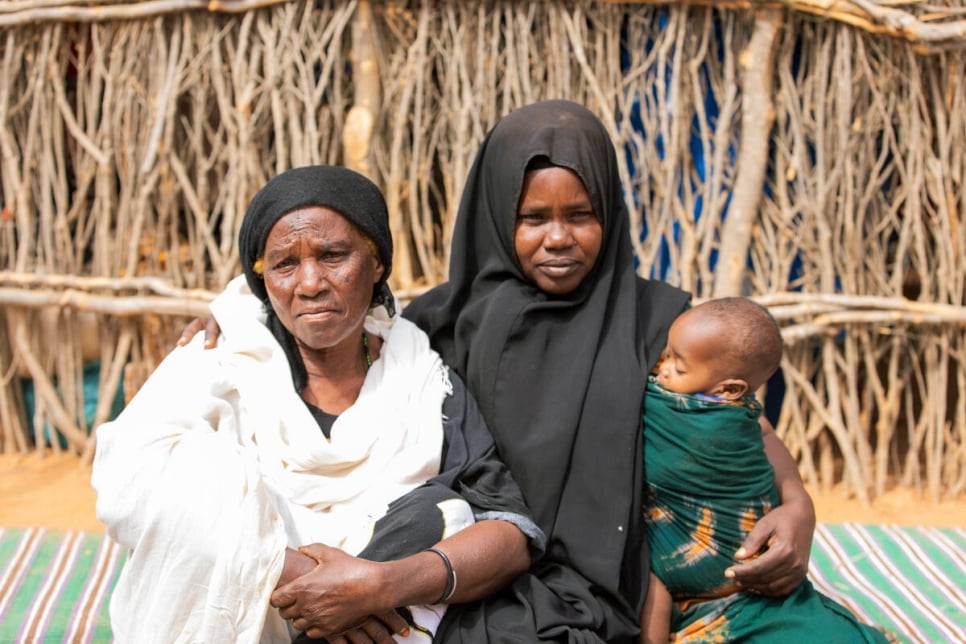Horn of Africa drought emergency
“In previous droughts, we would move to nearby towns and go back when the rains come, but this drought is the worst we have ever seen. We walked for eight days to reach here. There was nothing to feed my children. They would cry and cry and cry. At some point, I thought of taking my own life instead of watching them die of hunger in front of me.”
Shamsa Amin Ali, 38, Somali refugee in Kenya
The Horn of Africa region continues to experience the longest and most severe drought on record, threatening lives and livelihoods, including millions of refugees and internally displaced people.
Relentless drought and high commodity prices have weakened many people’s ability to grow crops, raise livestock and buy food. The dramatic food insecurity situation in drought-affected areas is expected to persist, driving inflated humanitarian needs well into 2023, with forecasts predicting a sixth failed rainy season in March-May 2023. Harvests have yielded little, and water sources have dried up.
While famine has so far been averted in Somalia, mostly due to a stepped-up humanitarian response, people continue to battle life-threatening food and water shortages resulting from massive losses of crops, livestock, and income. Local commodity prices also remain at an all-time high, out of reach for many.
The dangerous confluence of climate and conflict in the region is worsening an already dire humanitarian situation.
In just a few weeks at the start of 2023, close to 100,000 refugees arrived in remote, drought-affected areas of Ethiopia after fleeing fresh conflict across the border in the city of Laascaanood (Somalia). Most are women, children – many of them unaccompanied – or elderly. Many arrive in shock, telling stories of loved ones lost during flight or killed in the clashes. The refugees have arrived in a remote area, heavily affected by drought, and are in urgent need of food, nutrition screening, water, shelter, medical care and relief items.
As conditions continue to worsen due to drought and insecurity, hundreds of thousands of people across the Horn of Africa region are being forced to flee in search of safety and assistance, and humanitarian needs are expected to rise.
What is UNHCR doing to help?
UNHCR is providing essential supplies including emergency shelter and household items for new refugee arrivals and displaced people in Ethiopia, Kenya and Somalia. Provision of water is being increased through water trucking, drilling additional boreholes as well as refurbishing existing water and sanitation systems.
Cash assistance is being prioritized for the most vulnerable so they can buy what they need, including to supplement their food needs.
Health facilities are also being supported to step up nutritional assistance for women and children through high-nutrient feeding and medical treatment.
UNHCR is also working with local authorities to strengthen border monitoring and facilitate refugee registration and documentation so that new arrivals, including those with special needs, can access appropriate assistance. Child protection, as well as interventions to mitigate gender-based violence, will also be intensified.
UNHCR is appealing for $137 million to respond to the immediate needs of 3.3 million drought-affected people identified for assistance in Ethiopia, Kenya and Somalia in 2023 and for an additional $41.7 million specifically to respond to the urgent needs of refugees fleeing new violence in Laascaanood, Somalia, and seeking safety in drought-affected and remote areas in eastern Ethiopia.
To find the latest documents and figures from the region, please visit Global Focus.

